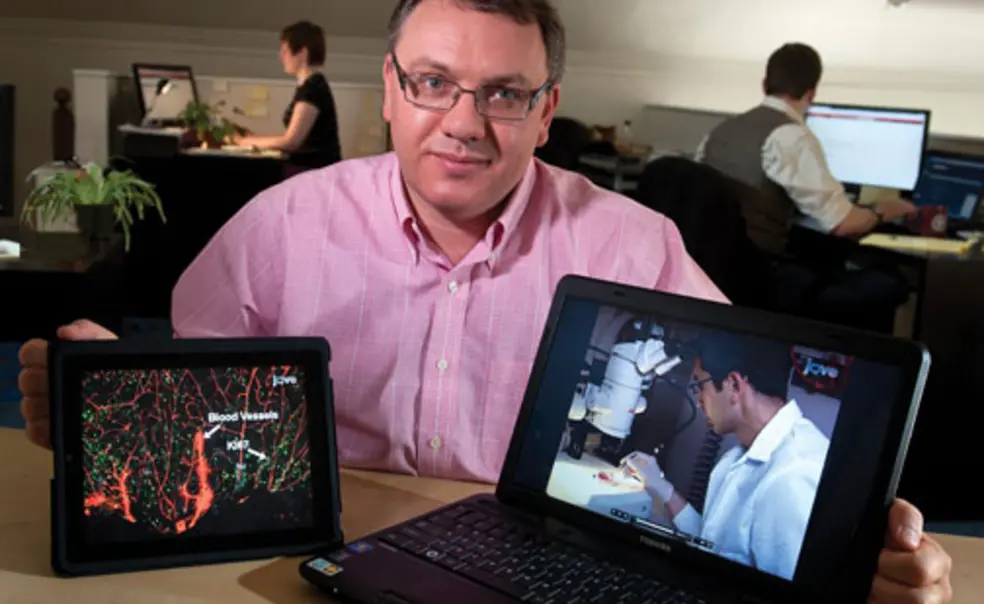Alumni Profile: Moshe Pritsker *05, co-founder of video science journal
Résumé: CEO, editor-in-chief, and co-founder of JoVE, the Journal of Visualized Experiments. Postdoctoral research at Harvard Medical School and Massachusetts General Hospital. Doctorate in molecular biology from Princeton.
CROSSING THE OCEAN FOR SCIENCE When Moshe Pritsker *05 was a graduate student in molecular biology, one of his professors read a paper in a prestigious journal about an innovative technique for growing stem cells. Eager to use the technique in his Princeton lab, the professor asked Pritsker to reproduce the experiment. Pritsker followed the paper to a T but was unable to replicate the results, a common experience in science. In this case, the professor had connections and grant money that enabled him to send Pritsker to Edinburgh, Scotland, to observe the experiment firsthand. After the trip, Pritsker was able to replicate the results, but the experience prompted him to question the status quo of text-only papers. He thought, “I’m crossing the ocean to come back with this technique. Why don’t we have a new type of journal?”
FILMING EXPERIMENTS Pritsker imagined a Web-based journal that would publish videos of experiments in addition to papers. While in Boston doing his postdoctoral fellowship, he learned how to operate a small camera and began persuading scientists of the viability of his vision — not easy, given the long history of print-only journals. Scientists are “quite conservative when it comes to science,” Pritsker says. He managed to coax enough people to put up a few videos in 2006.
LOOKING TO EXPAND Today Pritsker’s JoVE, the Journal of Visualized Experiments, has a network of videographers in 14 countries, 50 employees at its headquarters in Cambridge, Mass., and $5 million in revenue from subscription sales to institutions and author charges. User satisfaction is high. “We constantly hear this feedback from scientists and students that JoVE is so helpful,” Pritsker reports. He no longer practices science; his hands are full as CEO. For now, JoVEfocuses on biological sciences — recent papers detail novel ways to study gene expression in developing chick retinas and to image mouse lymph-node tissues — but Pritsker foresees expansion “to different areas of science — psychology, chemistry, engineering. Any work that requires an experiment would benefit fromJoVE.”












No responses yet